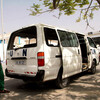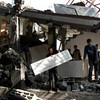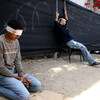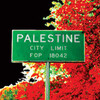
Palestinian killed and seven wounded in Rafah fighting
8 May 2007
PCHR strongly condemns the bloody incidents that took place on Sunday noon in Tal al-Sultan neighborhood in Rafah, which took the life of a bodyguard of Majed Abu Shammala, Member of the Palestinian Legislative Council (PLC), and wounded seven others, including three children. PCHR calls upon the Palestinian National Authority (PNA) to effectively investigate these incidents, which are part of the state of security chaos plaguing the Occupied Palestinian Territory (OPT), and bring the perpetrators to justice. Read more about Palestinian killed and seven wounded in Rafah fighting








